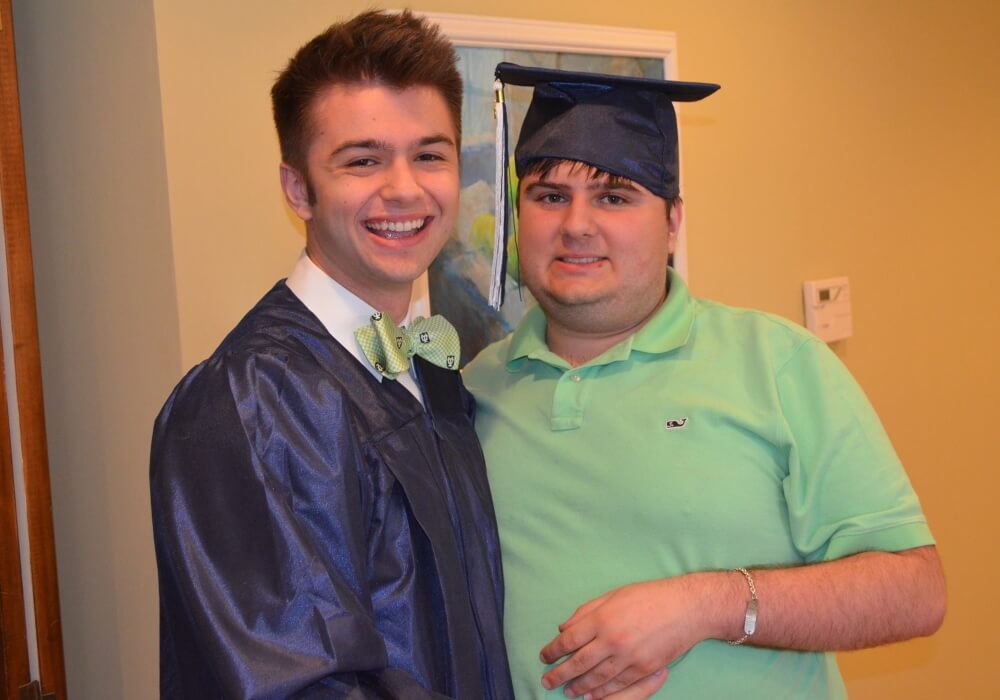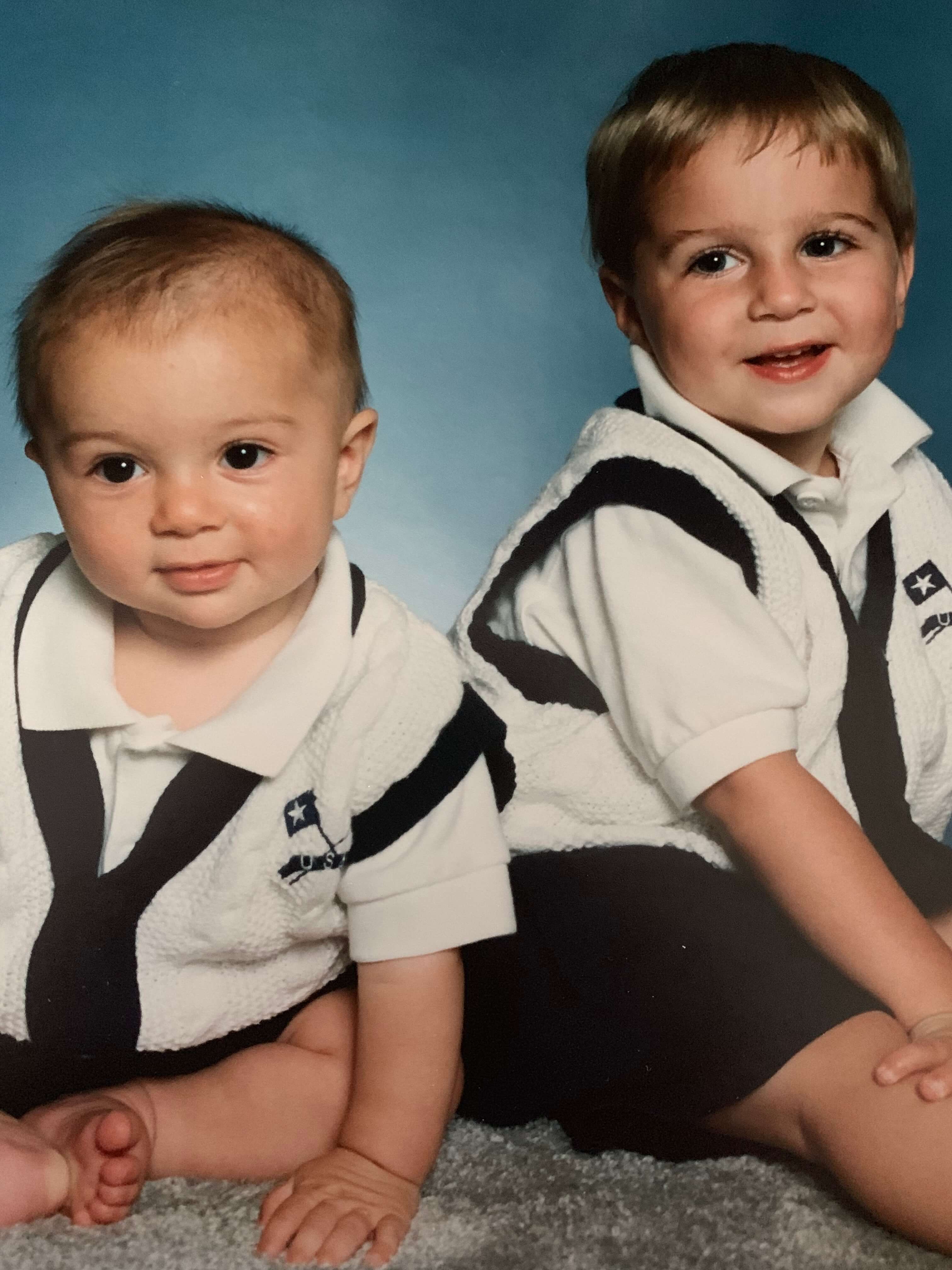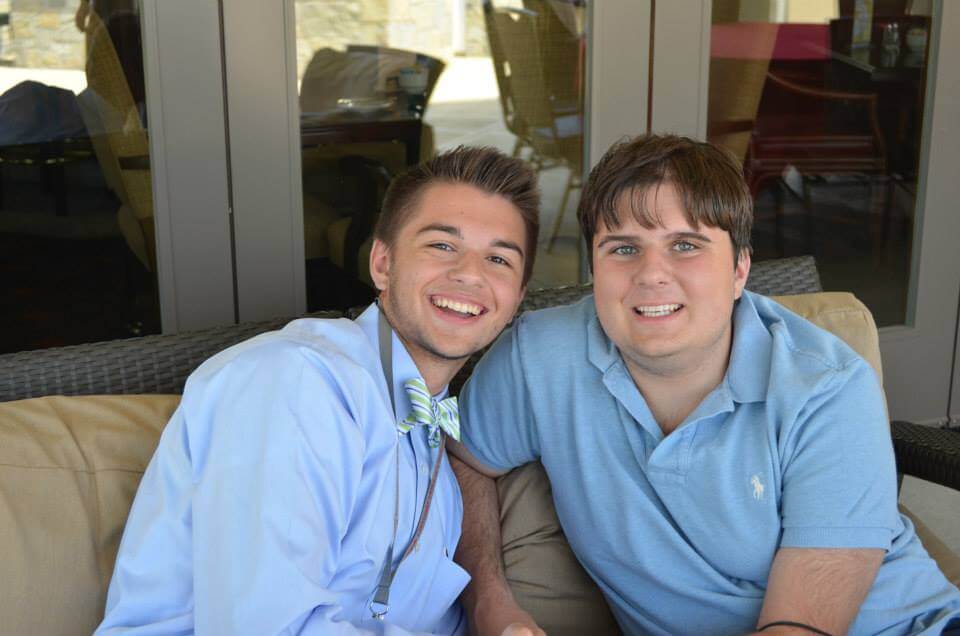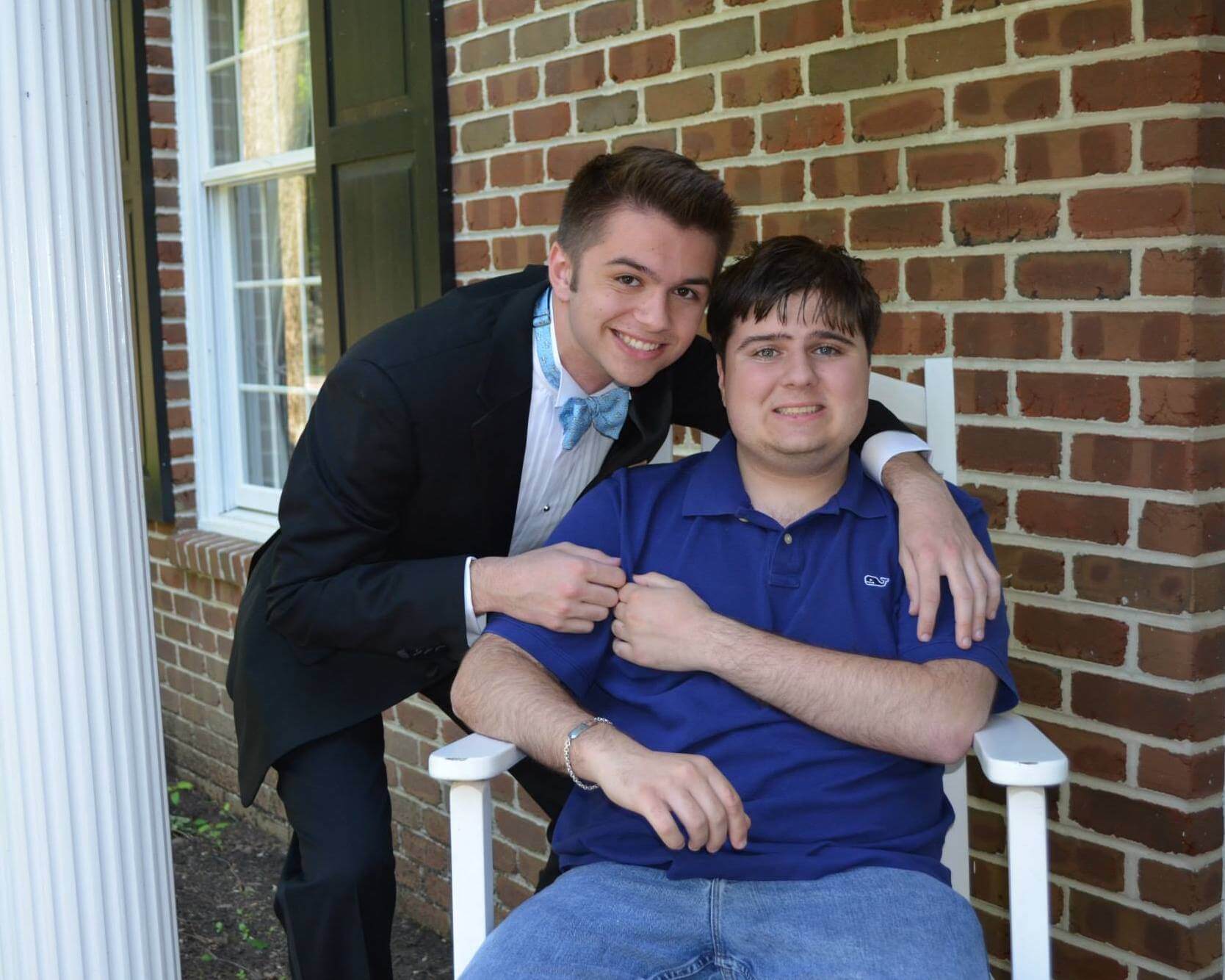Can Children with Severe Autism be Happy?

When a child is diagnosed with autism, it can feel like the whole world is collapsing. I should know — I felt that way in 1999 when my son, Lucas, was diagnosed with moderate-to-severe autism just before his third birthday.
My younger son, Spencer, was 18 months old and all the dreams I had of them growing up and being best friends disappeared.
It makes me sad to think of how devastated and disappointed I felt in those early days, and I wish I could go back and give myself some reassurance. While things have been different than I imagined, our lives have been anything but dismal!
Lucas and Spencer are now young adults and, despite the best therapy we could find for Lucas, he remains significantly impaired with severe autism.

Spencer is in college 1000 miles away from home, on track for med school next year, and thriving!
Ensuring Lucas is happy continues to take some additional effort, but the truth is that children with autism, and those who are developing typically, want the same things — the ability to make choices while feeling loved and supported in an environment that isn’t overly demanding.
Really, it’s what any of us want, right?
Here are three ways to help all children — even those with severe autism — find happiness every day:
Start programming for happiness
A couple years ago, I made a video called Programming for Happiness. Several years prior, while attending a Keynote presentation, I learned a valuable lesson from behavior analyst, Dr. Dennis Reid. He addressed his audience and explained the importance of programming for (and measuring) happiness in our clients with autism.
As I listened to him speak, I realized that, before our day has really even begun, we’ve already made dozens of choices. We are not passive bystanders in our lives, but active participants. This, of course, includes children with autism, too.

My goal, as a mother and as a professional in the autism field, is to help my clients reach their fullest potential. Overall, I want them to be happy. For this reason, I focus heavily on assessment along with pairing and manding to help reduce problem behaviors.
By addressing the things that can derail a day, we open up space for joy.
Learn the signs that your child is happy
No one wants to feel as though they have no control over their life. One of the most important ways to foster independence and empowerment is to encourage children and clients with autism to make choices. Of course, this isn’t always easy.
Kids and adults with moderate to severe autism may struggle with communication, making it harder to measure their level of happiness. In these situations, it’s so important to observe, document, and recognize contentedness whenever it happens.
Do they seem to be happy? Are they smiling? Do they appear motivated to keep a certain activity going? Those are signs that things are going well! We have a tendency to look for problems, for things that are going wrong, so this may take a shift in thinking, but it can be so rewarding for you, your child, and/or your clients.
Staying positive goes a long way
One of the most important things you can do is stay positive, even when days are rough! Step away to take some deep breaths and regroup, but if you want your child or client to be happy, you need to model happiness yourself!
Working with children with autism can sometimes be discouraging and difficult, so be sure to take breaks and refill your tank. You can’t give your all if you’re running on empty.
At the end of the day, some moments will be better than others but, if you look for the silver linings, those slivers of sunshine in your day, it will make all the difference.
As you and your child move through the day, create an environment that keeps demands as low as possible and reinforcement really high.
Once your child is in a good place, you can start gradually increasing demands and lowering reinforcement. With this strategy, I think you’ll find life to be a lot more peaceful for both of you!
Whether our children are still in diapers or adults navigating life on their own, we want them to be independent, safe and, most of all, happy.
Giving them a strong foundation from an early age, whether they have autism or not, can make all the difference.
 Written by, Dr. Mary Barbera
Written by, Dr. Mary Barbera
Dr. Mary Barbera is an autism mom, behavior analyst, best-selling author, online course creator, blogger, and podcaster. She’s on a mission to Turn Autism Around in 2 million by 2020. Sign up for a free online workshop, at marybarbera.com/workshop.
Interested in writing for Finding Cooper’s Voice? LEARN MORE
Finding Cooper’s Voice is a safe, humorous, caring and honest place where you can celebrate the unique challenges of parenting a special needs child. Because you’re never alone in the struggles you face. And once you find your people, your allies, your village….all the challenges and struggles will seem just a little bit easier. Welcome to our journey. You can also follow us on Facebook, subscribe for exclusive videos, and subscribe to our newsletter.

